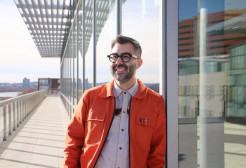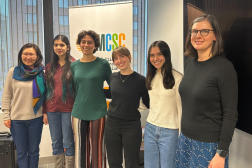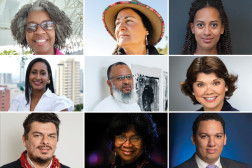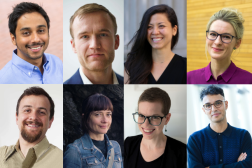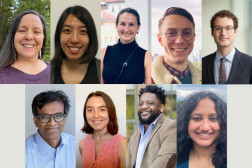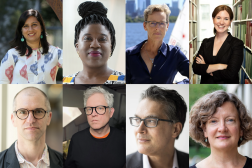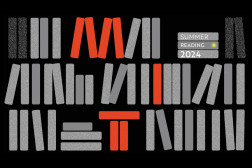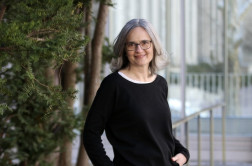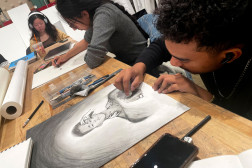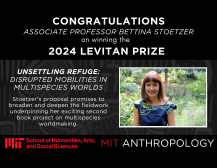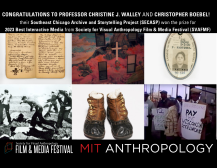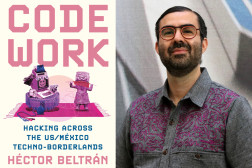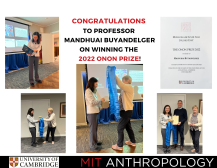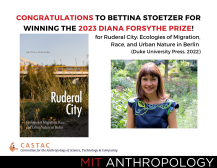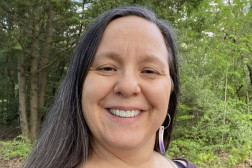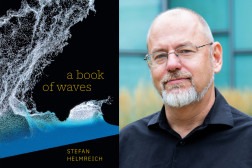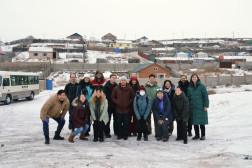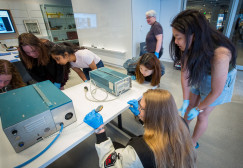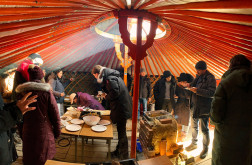News Archive
MIT anthropologist Héctor Beltrán awarded 2025 Levitan Prize in the Humanities
Benjamin Daniel | SHASS News
December 9, 2024
Mixing joy and resolve, event celebrates women in science and addresses persistent inequalities
David Orenstein | The Picower Institute for Learning and Memory | MIT News
October 10, 2024
3 Questions: Bridging anthropology and engineering for clean energy in Mongolia
Leda Zimmerman | School of Humanities, Arts, and Social Sciences | MIT News
October 2, 2024
MIT welcomes nine MLK Scholars for 2024-25 - Leslie Jonas and Christine Taylor-Butler are hosted by MIT Anthropology Faculty Members
Institute Community and Equity Office | MIT News
September 11, 2024
Meet the 2024 tenured professors in the MIT School of Humanities, Arts, and Social Sciences
School of Humanities, Arts, and Social Sciences | MIT News
September 10, 2024
School of Humanities, Arts, and Social Sciences welcomes nine new faculty
School of Humanities, Arts, and Social Sciences | MIT News
August 1, 2024
MIT SHASS announces appointment of new heads for 2024-25
School of Humanities, Arts, and Social Sciences | MIT News
July 11, 2024
Heather Paxson named associate dean for faculty of the School of Humanities, Arts, and Social Sciences
Michael Brindley | School of Humanities, Arts, and Social Sciences
April 19, 2024
In the new interdisciplinary course 21A.513 (Drawing Human Experience), students look within themselves for artistic inspiration.
Article: Nicole Estvanik Taylor | Photo: Allegra Boverman | School of Humanities, Arts, and Social Sciences | MIT News
January 29, 2024
Southeast Chicago Archive and Storytelling Project announced as SVA Film & Media Festival 2023 Winner in Best Interactive Media
SVA Film Media Festival
November 15, 2023
Writing code, and decoding the world - MIT News on Héctor Beltrán's new book “Code Work: Hacking Across the U.S./México Techno-Borderlands”
Peter Dizikes | MIT News | Photo: Allegra Boverman
November 14, 2023
Congratulations to Bettina Stoetzer on winning the 2023 Diana Forsythe Prize for her book Ruderal City!
Svetlana Borodina | CASTAC Co-Chair
September 28, 2023
Stefan Helmreich’s new book examines the many facets of oceanic wave science and the propagation of wave theory into other areas of life.
Peter Dizikes | MIT News
August 30, 2023
Exploring the Unexpected Social Questions Behind Everyday Medical Devices
Danna Lorch | MIT News
June 8, 2023
Anthro-Engineering in Ulaanbaatar: MIT NEET Article | Powering the Future
Story by Jiyoo Jye, Head of Communications | NEET, MIT
May 22, 2023
